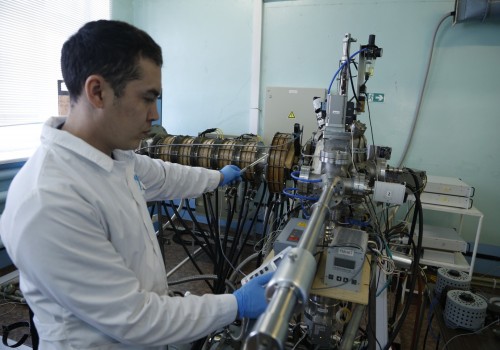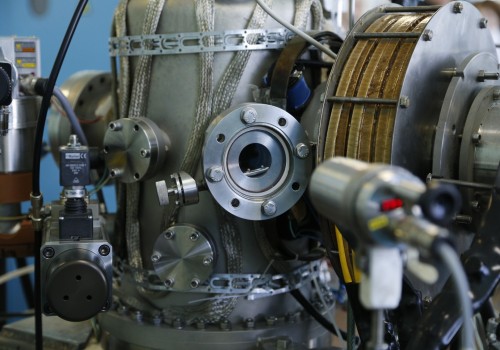The strategy of the National Nuclear Center of RK opened another one important direction - the development of controlled thermonuclear fusion technologies.

Kazakhstan’s Material Testing Tokamak KTM was created to solve research problems in the field of plasma physics and controlled thermonuclear fusion, and in 2018 a new laboratory for testing materials under thermonuclear reactor operating conditions was opened. The laboratory was headed by a young specialist Arman Miniyazov, who shared the current state of work within the new direction:
- Laboratory works are currently carried out to study plasma interaction with ITER diverter material. Along with these studies, the laboratory is developing direction in plasma diagnostics, conducting a detailed analysis for some experimental tasks using modern equipment.
Nowadays we have already implemented tasks on coating generation at the surface of tungsten diverter material within the approved scientific-technical program. Plasma diagnostics operations are carried out in close cooperation with colleagues from NRNU MEPhI as well as we collaborate with them to solve tasks on testing of diagnostic equipment at Tokamak KTM within the projects under implementation.

I consider it important to emphasize the high level of competency of our young leading employees having 10 years of experience in the field of plasma physics and reactor materials. Confirming my words, I will cite as an example the scientific effort of Igor Sokolov, leading laboratory engineer who completed the internship in NRNU MEPhI under financial support of the First President Foundation. Another two young employees of our laboratory in 2018 were awarded with the nominal scholarship of E.G. Batyrbekov, Director General of NNC RK for obtaining new research results as a groundwork for the future scientific research projects.
If we consider this idea for the current year as a whole, the young scientists of the new laboratory plan large-scale work on the technical implementation of experimental tests that are directly related to the projects and plans of scientific and technical support for the creation and operation of the Kazakhstan’s Material Testing Tokamak Reactor and ITER reactor.
We are confident that the enthusiasm and experience gained by our young scientists will become a good basis for the further scientific breakthroughs with the introduction of promising materials and the latest technologies.
NNC RK
